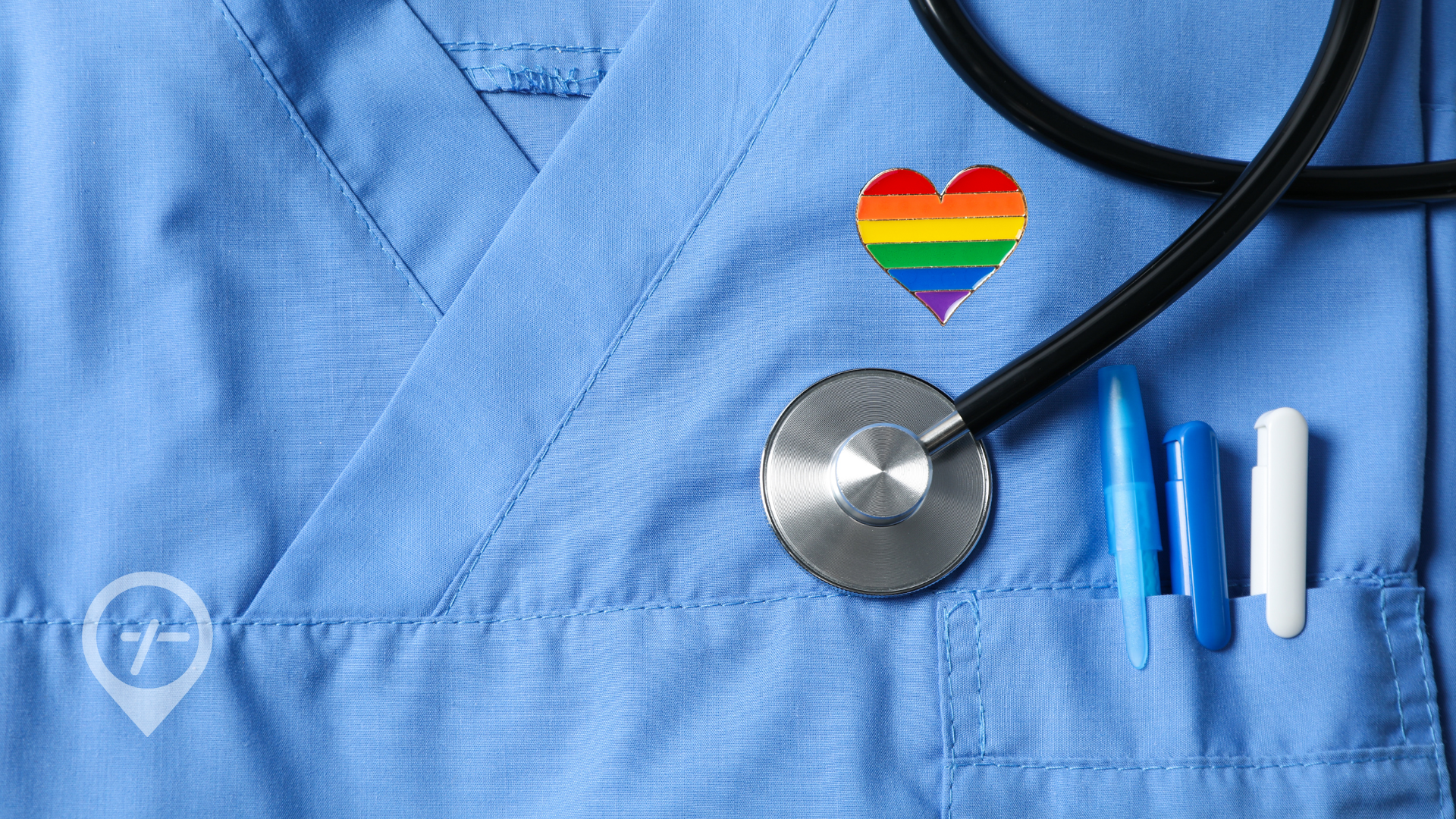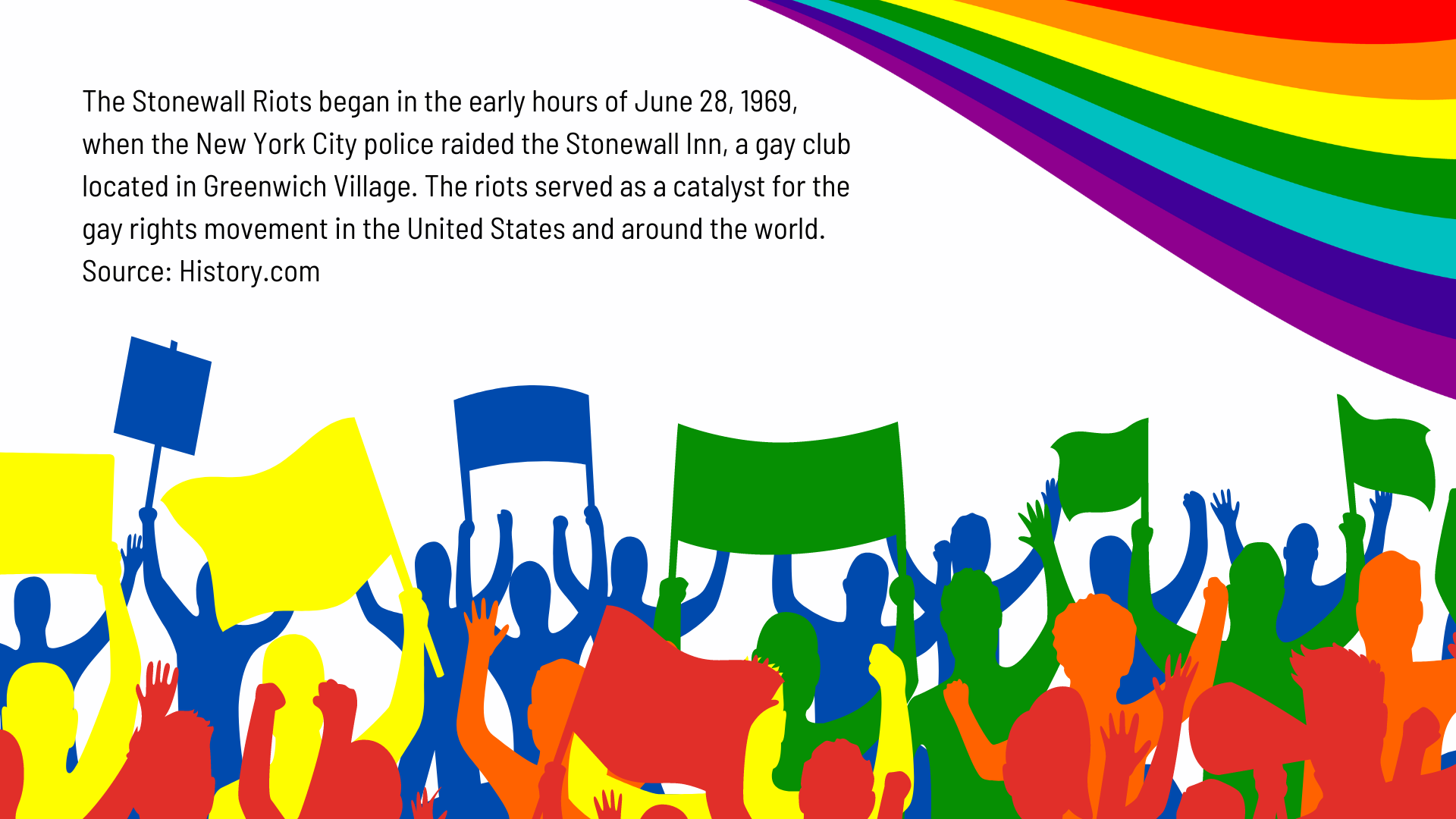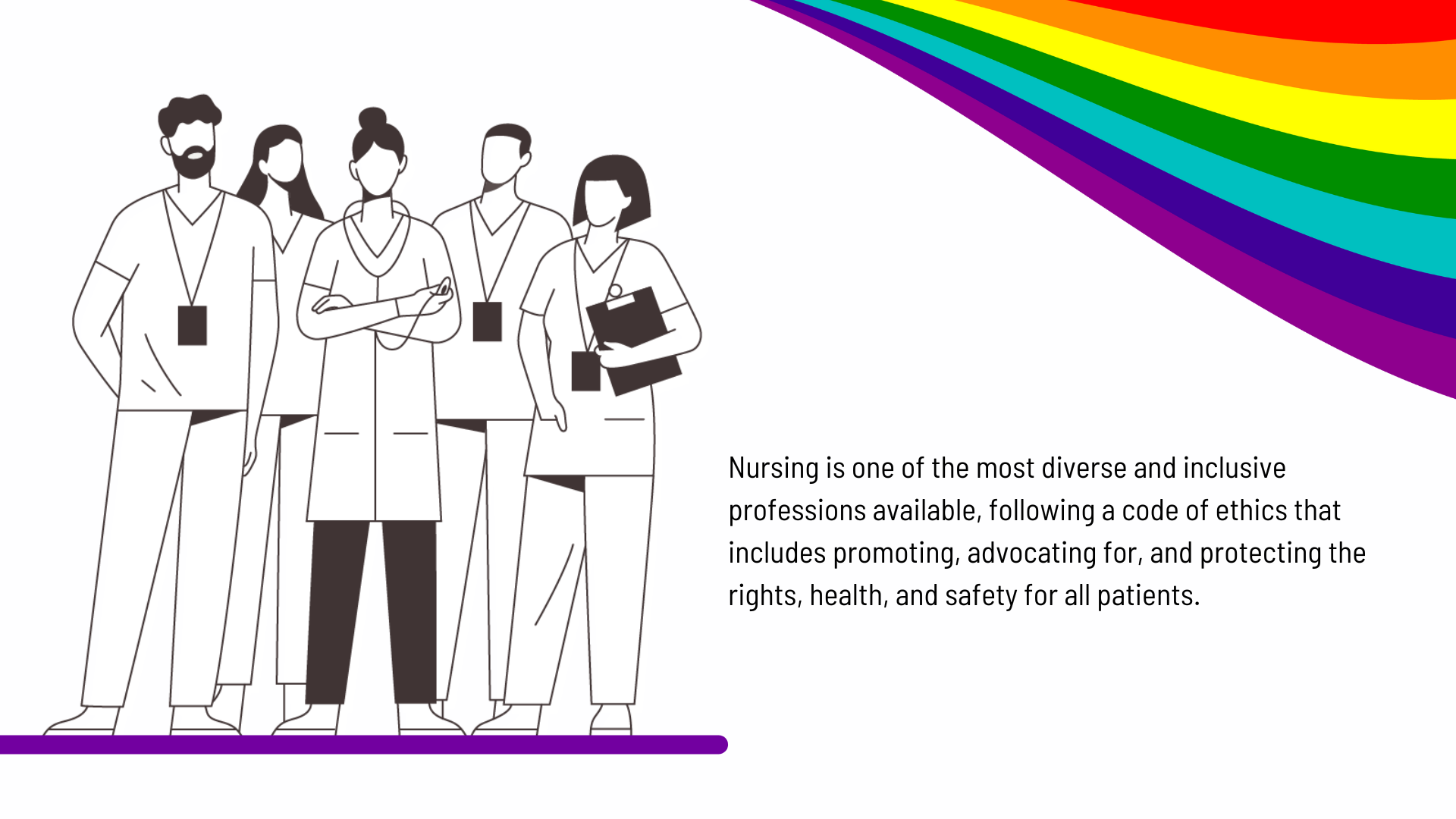Celebrating Nurses Who Care With Pride

Caring about Pride Month is more than just a seasonal acknowledgment—it's a vital extension of the core values that define the nursing profession: empathy, respect, and advocacy. These principles guide nurses in delivering superior patient care, fostering a supportive work environment for colleagues, and reinforcing the profession's steadfast commitment to social justice and health equity.
By actively engaging with Pride Month 2024, nurses honor the diverse identities and experiences of the LGBTQ+ community and champion a more inclusive and equitable healthcare system for all.
Happy Pride Month 2024
Pride celebrations for 2024, including parades, parties, and festivals, begin on Saturday, June 1, and end on Sunday, June 30. New York hosts the country's largest pride parades annually, with the city's 2024 theme being "Reflect. Empower. Unite."
Pride Month History
Recognized by the federal government in 1999, Pride Month occurs every June to commemorate the Stonewall riots and advocate for equal justice and opportunities for the LGBTQ+ community.
Catalyzing the modern Gay Rights movement, the riots began in the early hours of June 28, 1969, when the New York City police raided the Stonewall Inn, a gay club located in Greenwich Village. Exactly one year later, New York, Los Angeles, and Chicago hosted the first Pride marches.

Nursing Is a Diverse, Inclusive Profession
In the world of nursing, caring with pride has been going on every day for decades, with the first formal code of ethics for nurses adopted in 1950. Today's Nursing Code of Ethics includes provisions such as:
The nurse practices compassionately and respects every person's inherent dignity, worth, and unique attributes.
The nurse promotes, advocates for, and protects patients' rights, health, and safety.
The nurse collaborates with other health professionals and the public to protect human rights, promote health diplomacy, and reduce health disparities.
Essentially, nurses provide a safe space where patients can be authentic without fear of judgment. And that's one of the reasons nursing continues to top the annual Gallup poll for being the most trusted profession.

Trailblazers in Inclusive Patient Care
Nurses have always been committed to improving lives, even if it means bucking the system to do what's right. Consider the nurses who built Ward 5B at San Francisco General Hospital in 1983. It was the first AIDS ward unit in the United States where volunteer staff created care practices based on humanity and holistic well-being during great uncertainty. These exceptional healthcare professionals changed traditional hospital policy and helped patients maintain their dignity when no one else would.
Supporting LGBTQ+ Patients in Nursing
According to the latest Gallup numbers, the percentage of American adults identifying as lesbian, gay, bisexual, transgender, queer, or another sexual orientation besides heterosexual increased from 5.6% in 2019 to 7.6% in 2023.
A nationally representative CAP survey from 2017 revealed that LGBTQ+ individuals often face discrimination in healthcare settings, discouraging many from seeking necessary care and making it difficult for them to find alternative services if turned away. These findings highlight the critical need to protect LGBTQ+ people from discrimination in healthcare to ensure they receive the care they deserve.
Therefore, the healthcare industry must consider the unique needs of LGBTQ+ patients in terms of policy, practice, education, and research. These patients and their families should feel the healthcare facility they're visiting is accessible, inclusive, and knowledgeable about the care they need and deserve.
In this National Nurses United article, registered nurse Guy Vandenberg, who pioneered Ward 5B, discusses how nurses have a unique role as patient advocates in resisting institutional discrimination, fighting for social justice, and providing care that recognizes everyone's self-determination, bodily autonomy, and right to health.
Britta Houser, another registered nurse featured in the article, mentions that listening is a critical form of advocacy and that allowing patients to share their whole selves is essential. But despite a nurse's best intentions, they may not always be aware of LGBTQ+ patients' identities. "It's important to always be mindful of the way we [nurses] are talking to people or referring to a family member," she said.
A study published by the Journal of Professional Nursing cited that nursing is affected by sociopolitical shifts in society. However, changes to basic nursing education curricula are slow to initiate, resulting in knowledge gaps that may adversely affect patient care.
So, what can nurses do to understand LGBTQ+ patients better and deliver culturally competent care?
Learn and use the correct terminology when caring for patients.
Ask questions that focus on behaviors that impact health instead of sexual orientation.
Promote a welcoming environment for patients by wearing pride swag.
Learn about the healthcare discrimination that patients often face.
Understand how a patient's health and social needs evolve over the lifespan.
Check out these NIHCM webinars on addressing health disparities in the LGBTQ+ community.
Challenges Faced by LGBTQ+ Nurses
LGBTQ+ patients aren't the only ones facing challenges in our nation's healthcare system—so are the LGBTQ+ nurses who care for them.
According to a Minority Nurse article, LGBTQ+ nurses form one of the largest minorities within the profession, and yet they're hardly recognized as a subgroup. In this article, you can read about the professional struggles of several LGBTQ+ nurses, including nurse Austin Nation, PhD, MSN, PHN, RN.
With over 30 years of nursing experience to his credit, Austin Nation has faced a "triple-whammy" of workplace discrimination. As a gay black male in nursing, he has experienced racism, sexism, and homophobia. He has responded by founding and leading a Men in Nursing Group and spearheading an LGBT Cultural Competency for Healthcare Providers workshop.
While discrimination and inequality still exist for LGBTQ+ nurses, healthcare professionals in the United Kingdom are increasing the presence of LGBTQ+ staff networks to help drive positive change and minimize feelings of isolation experienced by nurses and colleagues in the LGBTQ+ community.
David Van de Velde, a mental health lead nurse in London, said he noticed a fundamental workplace shift after joining an LGBTQ+ staff network. "It's such a huge thing to bring every single bit of myself to work and know that I'm accepted."
Resources for LGBTQ+ Patients and Nurses
Here's a list of patient healthcare resources and nursing organizations dedicated to the LGBTQ+ community.
Sage works to ensure that LGBTQ+ elders and people aging with HIV nationwide receive culturally competent care.
The Human Rights Campaign works to ensure every member of the LGBTQ+ community has the freedom to live their truth without fear and with equality under the law.
The Gay & Lesbian Medical Association facilitates developing and implementing specific actions to advance LGBTQ+ health issues within nursing practice, research, education, and organizational policy.
NALGAP is a membership organization dedicated to the prevention and treatment of alcoholism, substance use, and other addictions in lesbian, gay, bisexual, transgender, and queer communities.
National LGBT Cancer Network works to improve the lives of LGBTQ+ cancer survivors and those at risk.
PFLAG is the nation's largest organization dedicated to supporting, educating, and advocating for LGBTQ+ people and those who love them.
The Fenway Institute serves to optimize health and well-being for sexual and gender minorities (SGM) and those affected by HIV.
Conclusion
While nurses have long advocated for LGBTQ+ patients, there's always more work to be done. That's why taking the time to understand the current and unique needs of the LGBTQ+ community and knowing how to deliver culturally competent care in a complex healthcare system is vital to ending healthcare discrimination among this population.